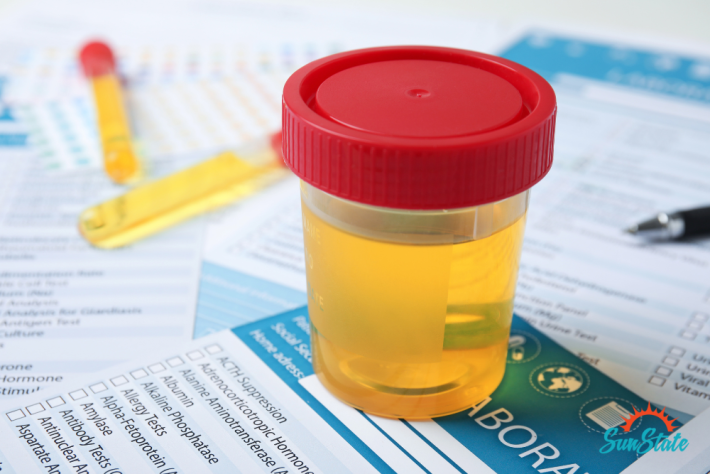Unveiling the Truth: Are DOT Drug Tests Capable of Detecting Synthetic Urine?
In the world of drug testing, the ongoing battle between those trying to cheat the system and those aiming to maintain a safe, drug-free workplace is ever-present. One popular method among individuals attempting to avoid detection is the use of synthetic urine. But are DOT drug tests capable of detecting synthetic urine? This article aims to uncover the truth.
How Effective Are DOT Drug Tests at Detecting Synthetic Urine?
DOT drug tests, regulated by the Department of Transportation, are specifically designed to accurately identify the presence of illicit substances. However, their effectiveness in detecting synthetic urine has become a topic of debate. With advanced technology and sophisticated synthetic urine formulas on the rise, it’s becoming increasingly difficult for drug tests to distinguish between real and fake urine. Laboratories and drug testing agencies are constantly developing new techniques to effectively detect synthetic urine.
This article will explore the different methods labs use to detect synthetic urine, evaluate the effectiveness of these tests, and provide insights on how employers can stay ahead in maintaining a drug-free work environment. Let’s dive deeper into the truth behind synthetic urine and DOT drug tests.
Understanding Synthetic Urine
Synthetic urine, also known as fake or substituted urine, is a man-made liquid designed to mimic the chemical and physical properties of human urine. It’s often used by individuals trying to cheat on drug tests, particularly for employment or legal reasons.
Can DOT Drug Tests Detect Synthetic Urine?
The Department of Transportation (DOT) regulates drug testing procedures for employees in safety-sensitive positions, such as commercial drivers, airline personnel, and railway workers. Although DOT drug tests are comprehensive, the ability to detect synthetic urine remains a challenge. The DOT has implemented various measures, including temperature strips, specific gravity measurements, and adulterant tests, to address this issue.
Factors Affecting Synthetic Urine Detection in Drug Tests
Several factors influence the detection of synthetic urine in drug tests, such as testing methods, the quality and composition of synthetic urine, and the expertise of the lab personnel conducting the analysis.
Common Techniques Used to Detect Synthetic Urine
In response to the increasing use of synthetic urine, drug testing laboratories have developed a variety of methods to detect its presence. These include temperature testing, specific gravity testing, and advanced chemical analysis techniques like gas chromatography-mass spectrometry (GC-MS) or liquid chromatography-mass spectrometry (LC-MS).
The Reliability of Drug Tests in Identifying Synthetic Urine
The reliability of drug tests in detecting synthetic urine can vary based on the testing methods and the quality of the synthetic urine product used. As synthetic formulations evolve, accurately distinguishing between real and fake urine samples has become more challenging.
Consequences of Using Synthetic Urine in DOT Drug Tests
Using synthetic urine in DOT drug tests can have serious consequences, including employment termination, revocation of safety-sensitive certifications, and even criminal charges. The impact can extend to an individual’s future employment prospects.
How to Avoid Detection When Using Synthetic Urine in Drug Tests
Considering the severe consequences, individuals should avoid using synthetic urine altogether. Maintaining a drug-free lifestyle and following testing procedures are the most effective ways to pass a drug test legitimately.
Alternatives to Using Synthetic Urine in DOT Drug Tests
Instead of resorting to synthetic urine, individuals can explore legitimate alternatives, such as detoxification products, to pass drug tests without risking their careers or legal standing.
***NOTE****
Hemp products that may present a problem on a drug test are those containing higher levels of THC or trace amounts that could accumulate in the body over time. Here’s a breakdown:
- Full-Spectrum CBD Products: These contain a range of cannabinoids, including trace amounts of THC (up to 0.3%). While legally compliant, regular use can lead to enough THC build-up in the system to trigger a positive drug test.
- Delta-8 THC and Delta-9 THC Products: These hemp-derived compounds have psychoactive effects similar to traditional marijuana and can show up on drug tests since standard tests cannot differentiate between Delta-8, Delta-9, and regular THC.
- THC-Infused Gummies and Edibles: Even if labeled as “hemp-derived,” these edibles might contain enough THC to result in a positive test, especially if consumed frequently.
- CBD Vape Products: Some vape oils may be contaminated with higher levels of THC than stated, making them more likely to cause a positive result.
If you’re concerned about drug tests, opt for CBD isolate or broad-spectrum CBD products, as they are typically THC-free. However, always check third-party lab results to ensure there’s no detectable THC.
Legal Disclaimer:
The information provided in this blog is for informational purposes only and is not intended as medical advice. Always consult with a healthcare professional before using any CBD or hemp products, especially if you have any medical conditions or are taking medications. All our CBD and hemp products are made in compliance with federal law and contain THC levels within the legal limit of 0.3% as permitted by the 2018 Farm Bill.



